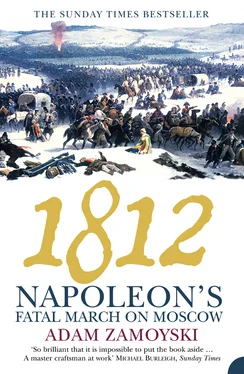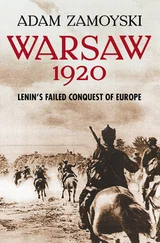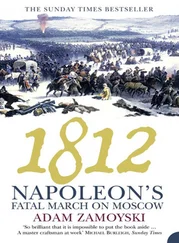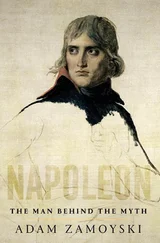Feeling the atmosphere grow cool, Napoleon decided to dangle another bauble before Alexander. In a long letter on 2 February 1808 he laid before him a grandiose plan for a joint attack on the British in India, holding out a prospect of empire in the east. It was an old idea. As early as 1797 General Bonaparte had declared that the surest way to destroy Britain was by throwing her out of India, and when he sailed for Egypt in May 1798 he took with him atlases of Bengal and Hindustan. He wrote to Tippoo Sahib, the Sultan of Mysore, who was then fighting the British, promising to come to his aid.
‘I was full of dreams, and I saw the means by which I could carry out all that I had dreamed,’ he confided two years later. ‘I saw myself founding a religion, marching into Asia, riding an elephant, with a turban on my head and in my hand the new Koran that I would have composed to suit my needs. In my undertakings I would have combined the experiences of the two worlds, exploiting for my own profit the theatre of all history, attacking the power of England in India, and, by means of that conquest, renewing contact with the old Europe. The time I spent in Egypt was the most beautiful of my life, for it was the most ideal.’ He felt that the East offered a grander stage on which to act out his destiny. ‘There has been nothing left to achieve in Europe over these last two centuries,’ he declared a couple of years later. ‘It is only in the East that one can work on a grand scale.’ Napoleon would far rather have emulated Alexander the Great than Charlemagne. 19
In 1801 he had sold the idea of a joint march on India to Paul, who had actually begun moving troops towards the Caucasus as a preliminary, and he had touched on it again at Tilsit. Circumstances were now inviting. The ruler of Persia, Shah Fath Ali, whose recent capture of Kabul and Kandahar brought her armies closer to the British outposts in India, greatly admired Napoleon and wanted French arms and officers to modernise his army. He had sent an ambassador, who reached Napoleon’s headquarters early in 1807, and in May a treaty of alliance was duly signed. General Gardane was sent to Persia as ambassador with a seventy-man military mission and instructions to survey the routes to India and map out convenient halting points. He came up with a route through Baghdad, Herat, Kabul and Peshawar. 20
‘If an army of 50,000 men, Russian, French, and perhaps even partly Austrian were to set off from Constantinople into Asia it would need to get no further than the Euphrates to make England tremble and fall at the feet of the continent,’ Napoleon wrote to Alexander on 2 February 1808. Caulaincourt noticed the Tsar’s expression change and grow animated as he read the letter. ‘This is the language of Tilsit,’ Alexander exclaimed. He thrilled at the grandeur of the concept and seemed keen to participate. 21But there would be no talk of the East at their next meeting, a few months later, as in the short term Napoleon needed his ally for another purpose.
A revolt had broken out against French rule in Madrid on 2 May 1808, and although this had been crushed with severity, insurrection had spread through the whole of Spain. A blow was dealt to French military prestige on 21 July when a force of some 20,000 men under General Dupont was cut off by a Spanish army and obliged to capitulate at Bailén. Exactly a month later, General Junot was defeated by the British at Vimiero in Portugal. Napoleon concluded that he must go to Spain and conduct operations in person. But he suspected that the moment he was fully engaged on the other side of the Pyrenees Austria would take the opportunity to make war on him. He therefore needed to make sure that his Russian ally was going to cover his back.
The two emperors agreed to meet at Erfürt in Thuringia. They arrived in the city on 27 September 1808 and spent the next two weeks in each other’s company. Alexander was treated to the spectacle of Napoleon as the master of Europe, surrounded by the kings of Westphalia, Württemberg, Bavaria and Saxony, the Duke of Weimar and a dozen other sovereign princes, all doing obeisance. He sat through bombastic performances of classics by Corneille, Racine and Voltaire performed by the best actors of Paris, brought along specially for the purpose. Among them were some of the most celebrated beauties, whom Napoleon apparently tried to introduce into Alexander’s bed. Napoleon had his troops parade before the Tsar, spent hours talking to him about administrative reforms, new buildings, the arts, and all the things he knew interested him. He took him off to visit the battlefield of Jena, and on the knoll from which he had commanded the action he gave a dramatic account of the battle. After this they sat down to a bivouac dinner, as though they were on campaign. Outwardly, Alexander appeared to be duly impressed. When the line ‘The friendship of a great man is a gift of the gods’ rang out during the performance of Voltaire’s Oedipe one evening, Alexander rose from his seat and ostentatiously took Napoleon’s hand, while the whole audience applauded. 22But it was all sham.
When Alexander had announced his intention of going to Erfürt, most of his entourage begged him not to go, knowing only too well his weakness and fearing that he would be forced into some new agreement. There was also a latent fear that he might never come back: only a few months earlier, Napoleon had invited the Spanish King Charles IV and his son to a meeting at Bayonne, and had promptly deposed and imprisoned them. The underlying fears are best expressed in a long letter the Tsar’s mother wrote to him just as he was setting off. In measured tones that nevertheless betray a sense of despair, she implored him not to go, saying that his attendance on Napoleon would insult the dignity of every Russian and lose him their confidence. ‘Alexander, the throne is but poorly secured when it is not based on that strong sentiment,’ she wrote. ‘Do not wound your people in all that they hold most sacred and dear in your august person; recognise their love in their present anxiety and do not go voluntarily to bow your forehead adorned with the most beautiful diadem before the idol of fortune, an idol accursed of present and future humanity; step back from the edge of the precipice!’ Again and again she came back to her real fear. ‘Alexander, in the name of God avoid your downfall; the esteem of a people is easily lost but not so easily regained; you will lose it through this meeting, and you will lose your empire and destroy your family …’
Alexander’s reply was calm, well reasoned and Machiavellian in its clear-sightedness. He poured cold water on the enthusiasm aroused by Bailén and Vimiero, pointing out that they were of no significance, and that Napoleon was strong enough to conquer Spain and beat Russia, even if Austria were to come to her aid. The only course of action was to work at mobilising the power of Russia and wait patiently for the moment when that power, along with that of Austria, could be brought to bear in a decisive way. ‘But it is only in the most profound silence that we must work towards this aim, not by boasting of our armaments and preparations in public, or in loudly denouncing him whom we wish to defy,’ he explained. He pointed out that France would always prefer alliance with Russia to a state of conflict, and this meant that Napoleon would not harm him and would not move against Russia if she did not provoke him. He was afraid Austria might be tempted into going to war too soon, thereby sealing her own downfall and putting back for years the moment at which they could stand up to Napoleon effectively. He believed that by going to Erfürt and appearing to be ready to support France against her, he might make Austria think twice before launching an attack that was doomed to failure. ‘If the meeting were to have no other result than that of preventing such a deplorable calamity, it would compensate with interest for all the unpleasantness involved in it,’ he concluded. To his sister Catherine, he replied more succinctly. ‘Napoleon thinks that I’m just a fool,’ he wrote, ‘but he who laughs last laughs longest.’ 23
Читать дальше












